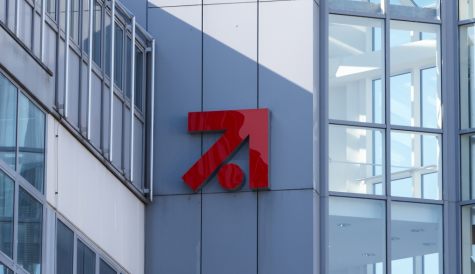Vivendi chief sees future in ‘horizontal’ convergence
Vivendi’s first attempt at convergence may have failed spectacularly, but the all-new media-focused Vivendi of 2017 is set to lead the way with a ‘horizontal’ convergence model, according to CEO Arnaud de Puyfontaine.
Vivendi first went down this road with the ill-fated Jean-Marie Messier-led acquisition spree that culminated in the French telecom group’s disastrous merger with Universal at the turn of the century.
Speaking for the first time at the Mobile World Congress in Barcelona, De Puyfontaine said that Vivendi had been among the first to see the potential of convergence, but that the plan had been ahead of its time.
Making reference to Vivendi’s Messier-era plan to bring telecoms and media assets together – which ended with the near bankruptcy of the group and the sale of a majority stake in Universal to NBC – he said: “The Vivendi of 2017 is a very different company but that insight still holds true.”
De Puyfontaine claimed that Vivendi is now putting together “the building blocks of a new type of company shaped between entertainment content and telecoms”.
The company has now opted for a horizontal convergence model rather than a vertical one, he said. In January, Vivendi hired Telefonica Brasil’s former chief executive Amos Genish to take on the role of chief convergence officer to head up the company’s efforts in this area.
“The main core is the creative content businesses,” said De Puyfontaine, adding that Vivendi is now an “entertainment powerhouse” with the “ambition to be a worldwide leader”, whose activities span film and TV, music and games.
“Vivendi is today one of the top European content players, based on Canal+, Universal Music and [gaming company] Gameloft.”
Describing the acquisition of Gameloft as Vivendi’s “return to the gaming market”, De Puyfontaine said a mobile game based on StudioCanal’s hit movie franchise Paddington would be released at the same time as the second Paddington movie this year, while the soundtrack would be available from Universal Music – an example of the kind of cross-platform synergy made possible by the horizontal convergence model.
De Puyfontaine said that mobile would be a key part of the vision and cited Vivendi’s creation of short-form mobile content unit Studio+ as an example.
“Music, films and gaming have one thing in common – they are all increasingly accessed via mobile, but there is a shortage of premium content available via mobile.” He said Vivendi had tried to address this via the creation of Studio+, which “brings unexpected and powerful stories to life…through a dedicated app.”
Earlier this week, Vivendi struck a deal with Russian service provider VimpelCom – now rebranded as Veon – to introduce Studio+ to Russia in June. De Puyfontaine said deals of this type with mobile operators would help the latter pull customers towards taking bigger data bundles.
He claimed that content companies would have to find a way to compete with the ‘GAFA’ internet giants – Google, Amazon, Facebook and Apple – and would need scale to invest in intellectual property and distribute their content to a wider audience. In this context, the interests of media and telecom operators are aligned, he said.
Mediaset deal still possible
Speaking at MWC, De Puyfontaine indicated that Vivendi is hopeful that a deal with Mediaset is still possible, despite the ongoing legal battles between the two media groups.
On the question of Vivendi’s southern European strategy and the botched deal with Mediaset, De Puyfontaine said he believed it was possible to find a way forward.
He reiterated that Vivendi’s stake in Telecom Italia, in which it is the leading shareholder, was also central to its goals, pointing out that Italy has no legacy cable infrastructure and that the telecom operator would play the major role in bringing high-speed connectivity to Italian consumers.
“We are creating a new story for Telecom Italia and [we want to] build a southern European player with Mediaset. We will find a solution and make it work. I’m pretty sure about that.”
De Puyfontaine’s comments came in the same week that Milan prosecutors opened an investigation into the French media group for allegedly manipulating the market at the time of its acquisition – in a series of steps – of close to 30% of Mediaset’s stock at the end of last year. Vivendi said the probe was the result of the “unfounded and abusive” lawsuit launched by Mediaset’s owners, which is set to come to court soon.




